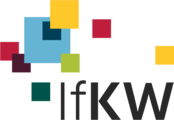The Trust Relationship between Science and Digitized Publics
The follow-up project "The Trust Relationship between Science and Digitized Publics II" (TruSDi II), approved by the DFG, concretizes the findings of the TruSDi I project. In six research modules, a mix of methods is used to adress overarching questions such as the relationship between science and digitized public, how dynamic this trust is, and how changes can be explained. In TruSDi II, the investigation of general trust in science is supplemented by trust in research on the socially relevant topics of climate change and artifcial intelligence. The project includes the continuation of the panel survey, the analysis of the effects of media use and media content on changes in trust, and the identification of key events related to trust. In addition, correlations between digital scientific opinion leaders, their followers, and trust in science will be explored.
